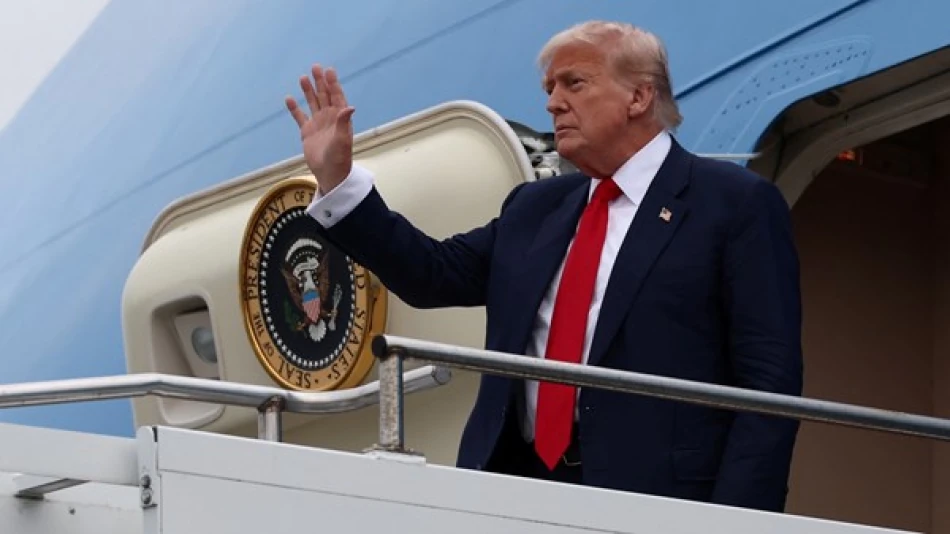
Former US President Trump Arrives in Scotland for Controversial Golf Course Visit
Trump's Scotland Golf Retreat Signals Strategic European Diplomacy Reset
Former President Donald Trump has arrived in Scotland for a five-day visit that combines personal business interests with high-stakes diplomatic meetings, including talks with British Prime Minister Keir Starmer and European Commission President Ursula von der Leyen. The trip underscores Trump's continued influence in transatlantic relations despite being out of office, while highlighting his unique approach of mixing luxury leisure with international politics.
A Familiar Pattern: Golf Diplomacy Returns
Trump's presidential aircraft touched down at Prestwick Airport near Glasgow at approximately 8:30 PM GMT on Friday, according to journalists aboard the flight. The former president is expected to travel to Turnberry, one of two Scottish golf resorts owned by his family business and managed by his sons.
This marks a return to Trump's signature "golf diplomacy" style, where he frequently conducted informal negotiations and relationship-building on his properties. During his presidency, Trump hosted world leaders at Mar-a-Lago and other Trump-branded venues, arguing that the relaxed atmosphere facilitated more productive discussions than traditional diplomatic settings.
Strategic Timing Amid European Political Shifts
The timing of Trump's visit is particularly significant given the recent political changes across Europe and the UK. Prime Minister Starmer's Labour government, which took power in July 2024, represents a marked shift from the Conservative leadership that Trump worked with during his presidency. The meeting offers both leaders an opportunity to establish working relationships ahead of potential future political developments.
Testing New Waters with EU Leadership
Trump's scheduled talks with von der Leyen are especially noteworthy given his historically contentious relationship with EU institutions. During his presidency, Trump imposed tariffs on European goods, criticized NATO spending levels, and frequently clashed with Brussels over trade policies. This meeting could signal either a softening of positions or an attempt to establish preliminary frameworks for future negotiations.
Business Interests Meet Political Ambitions
The choice of Turnberry as the base for these diplomatic activities reflects Trump's ongoing strategy of leveraging his business properties for political gain. The Scottish resort, which Trump purchased in 2014 for approximately $60 million, has faced financial challenges in recent years, with reported losses exceeding $10 million annually.
By hosting international political figures at Turnberry, Trump simultaneously promotes his business interests while positioning himself as a continued power broker in international affairs. This approach mirrors strategies employed by other business-politician figures globally, though few have maintained such direct ownership of the venues used for diplomatic purposes.
Implications for Future Transatlantic Relations
For European leaders, engaging with Trump during his private visit serves multiple strategic purposes. It demonstrates diplomatic flexibility while allowing them to gauge his current political thinking and potential future policy directions. Given Trump's continued influence within the Republican Party and speculation about future political ambitions, these conversations could prove valuable for long-term European strategic planning.
The meetings also provide Trump with a platform to maintain his international profile and demonstrate continued relevance in global affairs, potentially strengthening his position in domestic political discussions. For investors and political observers, the visit serves as a barometer for potential shifts in US-European relations and trade policies.
The five-day duration suggests these will be substantive discussions rather than mere courtesy calls, indicating that all parties see value in deeper engagement despite the informal setting.
Most Viewed News

 Layla Al Mansoori
Layla Al Mansoori






